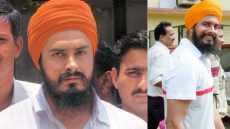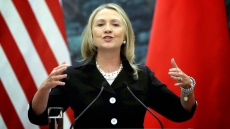Western nuclear powers and 37 other countries led by Washington are boycotting the negotiations on banning nuclear weapons that began on Monday, US Permanent representative Nikki Haley announced.
She cited the danger posed by international outlaws who will not abide by any treaties or laws as a rationale for her country, France, Britain and the others to stay away from the negotiations on a legally binding treaty to ban nuclear weapons.
India abstained from voting on the General Assembly resolution last year that called for the negotiations. It could not be ascertained if India was participating in the negotiations that started on Monday.
While China and Pakistan also abstained on the resolution, Russia joined the western nuclear powers in voting against it.
The Democratic Party administration of President Barack Obama opposed the Assembly resolution to set up the nuclear weapons ban negotiations and President Donald Trump is continuing the policy.

"In this day and age we can't say honestly that we can protect our people by allowing the bad actors to have them," Haley told reporters outside the General Assembly chamber where the meeting on the negotiations was taking place.
"We have to be realistic," she said. "Is there anyone that believes that North Korea would agree to a ban on nuclear weapons?"
In defiance of the UN, North Korea is developing nuclear weapons and missiles to launch them.
Haley instead pitched the Nuclear Non-Proliferation Treaty (NPT) as the route to disarmament.
France's Deputy Permanent Representative Alexis Lamek said the NPT remains the cornerstone of nuclear disarmament efforts. A new treaty to ban all nuclear weapons will divide the parties to the NPT, he said.
British Permanent Representative Matthew Rycroft also backed that approach. He sadi that his country was for a step by step approach within existing multilateral system.





